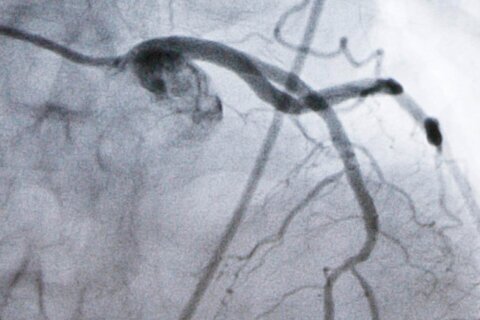WASHINGTON — A new method of determining whether someone has a life threatening heart rhythm problem could be a game-changer for preventing strokes.
Washington Adventist Hospital is part of an international study creating a database of 3,200 patients being monitored with Medtronic’s Linq loop recorder.
The device is implanted under a patient’s skin; it records his heartbeat and forwards the information wirelessly to a doctor to review every morning.
“And it does it in a seamless way that the patient isn’t even aware of,” said Dr. Sean Beinart, an electrophysiologist and head of cardiac research at Adventist HealthCare Washington Adventist Hospital. “It can pick up arrhythmias potentially even before a patient is aware they’re having them.”
Using the tool with patients who have other risk factors such as diabetes, a previous stroke, heart failure or high blood pressure could help save their lives.
“Knowing that the patient actually has atrial fibrillation — it opens up a world of benefit by providing options for reducing subsequent stroke risk,” Beinart said.
Beinart believes implantable devices that report bodily functions directly to doctors will become increasingly more common and beneficial.
“This is the beginning of a wave of remote monitoring,” Beinart said. “I think that the possibilities are going to be endless.”








